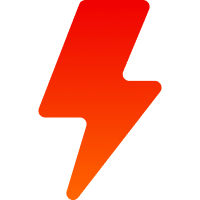Choosing between Etsy and Shopify: Pros, Cons, and Fees
Table of Contents
- Introduction
- Pros and Cons of Etsy
- Pros and Cons of Shopify
- Which Platform is Right for You?
- Conclusion
Pros and Cons of Etsy and Shopify: Comparing Two E-commerce Platforms
Etsy and Shopify are two popular platforms in the world of e-commerce. Each has its own unique features and benefits that cater to different types of businesses. In this article, we'll delve into the pros and cons of Etsy and Shopify to help you decide which platform is the right choice for your online store.
Pros and Cons of Etsy
Pros
- Established Marketplace: Etsy is a well-known platform that attracts a large number of customers. It is the go-to marketplace for handmade goods, one-of-a-kind items, and unique gifts.
- Built-in Customer Base: With millions of people already shopping on Etsy, you have an existing customer base to tap into. This can be advantageous, especially for beginners who don't have a large social media following or brand presence.
- Easy to Set Up: Setting up a store on Etsy is relatively simple and requires less effort compared to building a standalone website.
- Customizable Listing Photos: While the overall website design and structure are predefined, you have the flexibility to customize your listing photos and banner, allowing you to showcase your products in a visually appealing way.
- Low Barrier to Entry: Etsy offers the first 40 listings for free, which can be beneficial for businesses just starting out. It provides an opportunity to test the market and gauge customer demand without upfront costs.
Cons
- Lack of Branding: Etsy is not your own website, and you are restricted in terms of branding options. You must comply with Etsy's policies and guidelines, and you don't have a custom domain name.
- Intense Competition: As a seller on Etsy, you are competing with other shop owners who may have similar listings. Standing out and reaching the number one spot in search results can be challenging.
- Fees and Charges: Etsy charges fees for every listing, sale, and renewal, as well as transaction and processing fees. These additional costs can eat into your profits, particularly as your business grows.
- Limited Control: Since Etsy is a marketplace platform, you have less control over certain aspects of your store, such as ads, similar listings displayed on your page, and potential policy changes.
Pros and Cons of Shopify
Pros
- Complete Brand Control: With Shopify, you have full control over your website's branding, allowing you to create a unique and professional look and feel. You can customize your store with your own logo, photos, colors, fonts, and layout.
- Extensive App Store: Shopify has an extensive app store that offers a wide range of tools and apps to enhance your store's functionality. These apps can help with marketing, SEO, social media integration, and more.
- Scale and Growth Potential: Shopify is designed to help businesses scale and grow. It offers advanced features suitable for large quantities of products, bulk sales, and seamless integration with various shipping and fulfillment solutions.
- 24/7 Customer Support: Shopify provides round-the-clock customer support, making it easy to get assistance whenever you need it. Their knowledgeable team can help you with technical issues, customization, and guidance on running your online store.
Cons
- Self-Driving Traffic: Unlike Etsy, where customers already browse and shop, Shopify requires you to bring in your own customers. Getting the word out and driving sales can be more challenging, especially for businesses without a strong brand presence or social media following.
- Monthly Subscription: Shopify operates on a monthly subscription model, where you need to pay a fee based on the plan you choose. This ongoing cost may be a deterrent for businesses with tight budgets or low sales volumes.
Which Platform is Right for You?
Deciding between Etsy and Shopify depends on your unique business needs and goals. Consider the following factors:
- Type of Products: Etsy is ideal for handmade goods, vintage items, and customizable products. Shopify, on the other hand, is suitable for various types of businesses, including those selling physical products, digital goods, or dropshipping items.
- Branding Preferences: If having complete control over your brand's visual identity is essential, Shopify allows you to customize your website to align with your brand aesthetic. Etsy, while limited in design options, maintains a recognizable and trusted marketplace.
- Target Audience: Understanding your target audience and their shopping habits can influence your platform choice. If your target audience is already shopping on Etsy, it may be easier to gain visibility and trust. However, if you're targeting a broader market or specific niche, Shopify can offer more flexibility and growth potential.
- Budget and Resources: Consider your budget and resources when deciding between the two platforms. Etsy requires listing fees, transaction fees, and other charges, which can accumulate as your business grows. Shopify, on the other hand, involves a monthly subscription fee but offers more scalability options.
Ultimately, both platforms have their merits and drawbacks. Assess your business needs and weigh the pros and cons to determine whether Etsy or Shopify is the best fit for your online store.
Conclusion
In the Etsy vs. Shopify debate, there is no one-size-fits-all answer. The choice depends on the nature of your business, your goals, and your preferences. Consider factors such as branding control, customer base, competition, fees, and scalability when making your decision. Whichever platform you choose, make the most of the available features, invest in marketing, and provide exceptional customer service to propel your online business to success.
Highlights
- Etsy and Shopify are two popular e-commerce platforms with different strengths and weaknesses.
- Etsy offers an established marketplace, built-in customer base, easy setup, and customizable listing photos, to name a few pros.
- Some cons of Etsy include lack of branding control, intense competition, fees and charges, and limited control.
- Shopify provides complete brand control, an extensive app store, scale and growth potential, and 24/7 customer support as pros.
- The cons of Shopify include self-driving traffic and a monthly subscription fee.
- Choosing between Etsy and Shopify depends on factors such as product type, branding preferences, target audience, and budget.
- Assess your business needs and weigh the pros and cons to determine the best platform for your online store.
FAQ
Q: Can I use both Etsy and Shopify for my e-commerce business?
A: Yes, many sellers use both platforms to take advantage of their unique features. You can drive traffic to your Etsy shop to build a customer base and then transition them to your Shopify website for better branding and scalability.
Q: Can I migrate my Etsy store to Shopify?
A: Yes, you can easily migrate your Etsy store to Shopify using migration tools or manually transferring your listings. This allows you to retain your product data and customer information while taking advantage of Shopify's features.
Q: Which platform is better for beginners?
A: Both Etsy and Shopify offer benefits for beginners. Etsy provides an existing customer base and a straightforward setup process, while Shopify offers more customization options and scalability potential. Consider your specific business requirements and choose accordingly.
Q: Can I sell handmade goods on Shopify?
A: Yes, you can sell handmade goods on Shopify. While Etsy is more known for handmade items, Shopify provides flexibility and customization options suitable for various types of products, including handmade goods.
Q: Can I integrate print-on-demand services with both platforms?
A: Yes, both Etsy and Shopify support integration with print-on-demand services like Printify or Printful. This allows you to offer custom products without needing to manufacture or handle inventory yourself.






















